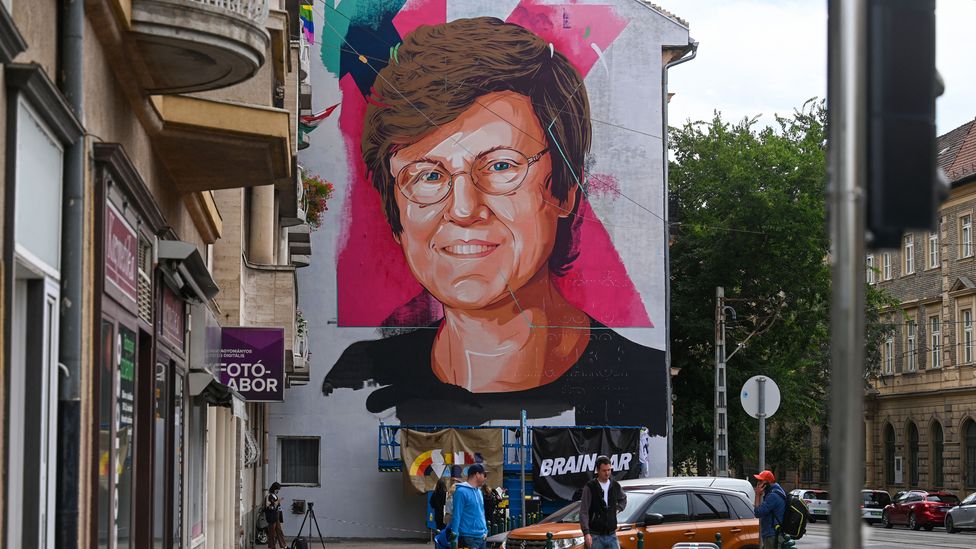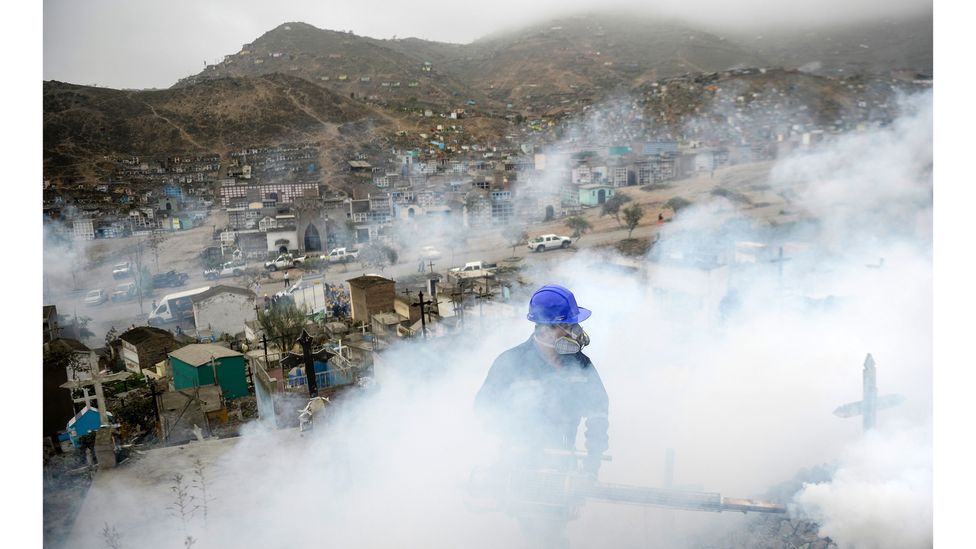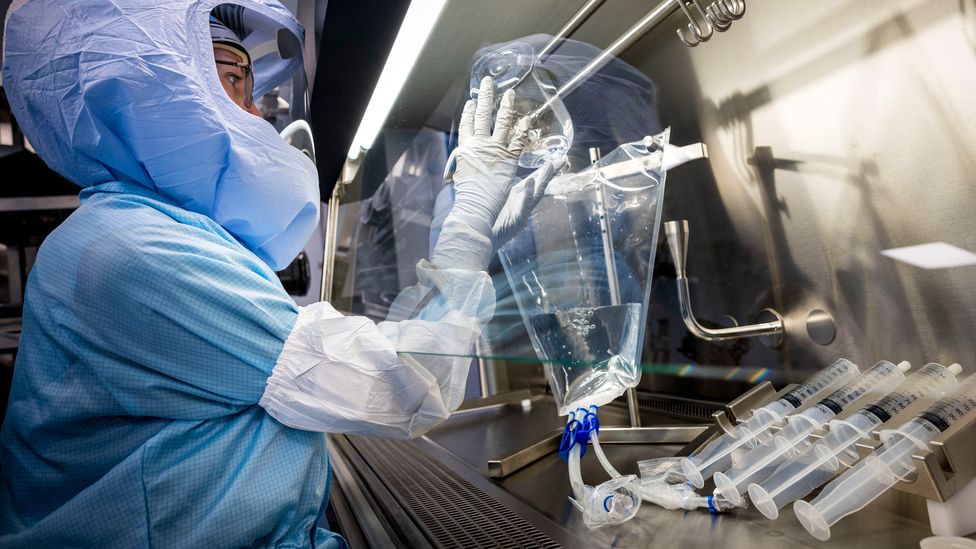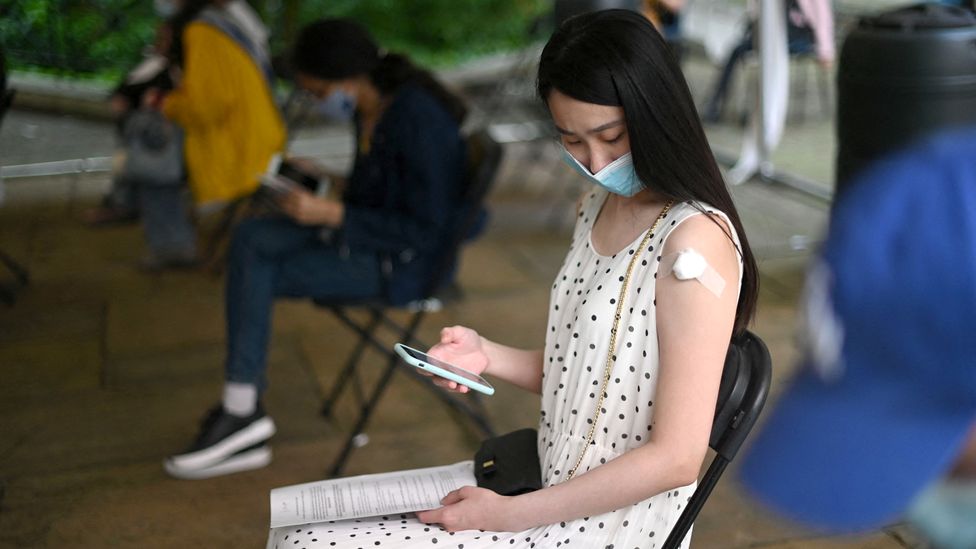Could mRNA make us superhuman?
(Image credit: Getty Images)
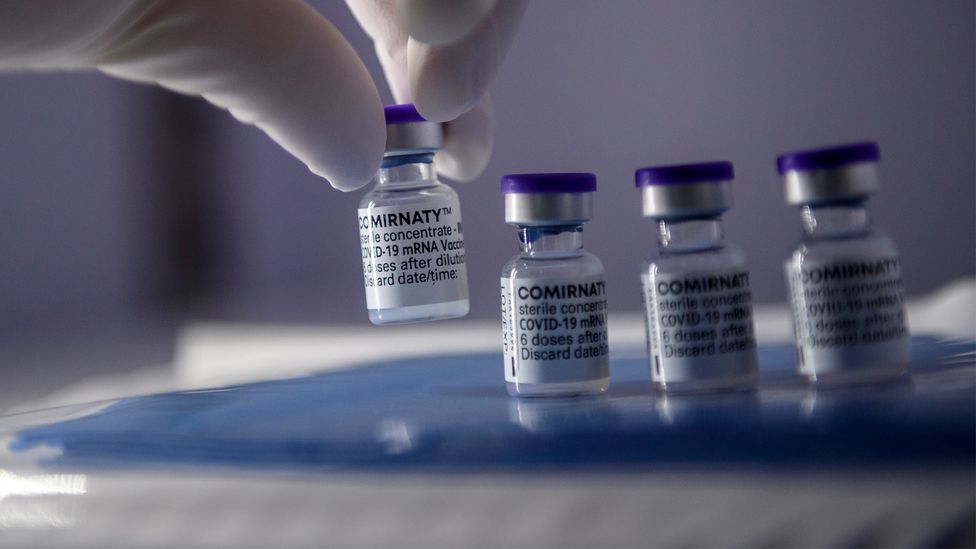
By Tim Smedley22nd November 2021
Until recently most people had never even heard of mRNA vaccines. Now scientists believe they may be the key to solving a wealth of health problems.
Barely a year ago, Anna Blakney was working in a relatively inconspicuous, niche field of science in a lab in London. Few people outside of her scientific circles had heard of mRNA vaccines. Because none yet existed. Attendees at an annual conference talk she gave in 2019 could be counted in the tens, not hundreds. Today, she's in hot demand: an assistant professor at the University of British Columbia, Canada, and a science communicator with 253,000 followers and 3.7 million likes on TikTok. She was, she admits, in the right place at the right time to ride a once-in-a-generation wave of scientific progress. She even gave this new era a name: "the RNAissance".
Due to the Covid-19 pandemic, many people have now heard of – and have received – an mRNA vaccine, from the likes of Pfizer-BioNTech and Moderna. But even when Blakney started her PhD at Imperial College London in 2016, "a lot of people were sceptical as to whether it could ever work". Now, "the whole field of mRNA is just exploding. It's a game changer in medicine," she says.
It's such a game changer that it raises some very big, exciting questions: could mRNA vaccines provide a cure for cancers, HIV, tropical diseases, and even give us superhuman immunity?
Messenger ribonucleic acid, or mRNA for short, is a single-stranded molecule that carries genetic code from DNA to a cell's protein-making machinery. Without mRNA, your genetic code wouldn't be used, proteins wouldn't be made, and your body wouldn't work. If DNA is the bank card, then mRNA is the card reader.

Billions of doses of mRNA vaccines have been administered across the globe since the Covid-19 outbreak began. (Credit: Getty
Once a virus is inside our cells, it releases its own RNA, tricking our hijacked cells into spewing out copies of the virus – in the form of viral proteins – that compromise our immune system. Traditional vaccines work by injecting inactivated virus proteins called antigens, which stimulate the body's immune system to recognise the virus when it reappears. The genius of mRNA vaccines is there's no need to inject the antigen itself. Instead, these vaccines use the genetic sequence or "code" of the antigen translated into mRNA. It's a ghost of the real thing, fooling the body into creating very real antibodies. The artificial mRNA itself then disappears, degraded by the body's natural defences including enzymes that break it down, leaving us with only the antibodies.
It is, therefore, safer to produce, more quickly and cheaply, compared with traditional vaccines. You no longer need huge bio-secure labs growing deadly viruses inside millions of chicken eggs. Instead, just one lab can sequence the proteins of the antigen and email it around the world. With that information a lab could make "a million doses of mRNA in a single 100ml test tube," says Blakney.
We've now seen that process play out in real time. On 10 January 2020, Zhang Yongzhen, a professor of zoonoses at the Chinese Centre for Disease Control and Prevention in Beijing sequenced the genome for Covid-19 and published the next day. Covid-19 was declared a pandemic by the World Health Organization (WHO) on 11 March. On 16 March, using Zhang's sequence, the first mRNA vaccine began its phase one clinical trial. The US Food and Drug Administration approved the Pfizer-BioNTech Covid-19 vaccine on 11 December, 2020, making history as not only the first ever mRNA vaccine approved for humans but also as the first to have a 95% efficacy rate in clinical trials. Approval of the Moderna mRNA vaccine followed close behind on 18 December. The previous title holder for "fastest ever vaccine", the mumps vaccine, took four years. The Moderna and Pfizer–BioNTech vaccines took just 11 months.
There weren't many people in the mRNA therapeutics world who would have imagined 95% initial efficacy rates – Kathryn Whitehead
The theory behind the mRNA vaccine was pioneered by University of Pennsylvania scientists Katalin Karikó and Drew Weissman, who both recently received the 2021 Lasker Award, America's top biomedical research prize. Even in 2019, however, mainstream mRNA vaccines were believed to be at least five years away. The pandemic fast-forwarded this field of medicine by half a decade. Kathryn Whitehead, an associate professor of chemical engineering and biomedical engineering at Carnegie Mellon University, and a key collaborator of Weissman and Karikó admits, "there weren't many people in the mRNA therapeutics world who would have imagined 95% initial efficacy rates in this emergency scenario".
(Image credit: Getty Images)

By Tim Smedley22nd November 2021
Until recently most people had never even heard of mRNA vaccines. Now scientists believe they may be the key to solving a wealth of health problems.
Barely a year ago, Anna Blakney was working in a relatively inconspicuous, niche field of science in a lab in London. Few people outside of her scientific circles had heard of mRNA vaccines. Because none yet existed. Attendees at an annual conference talk she gave in 2019 could be counted in the tens, not hundreds. Today, she's in hot demand: an assistant professor at the University of British Columbia, Canada, and a science communicator with 253,000 followers and 3.7 million likes on TikTok. She was, she admits, in the right place at the right time to ride a once-in-a-generation wave of scientific progress. She even gave this new era a name: "the RNAissance".
Due to the Covid-19 pandemic, many people have now heard of – and have received – an mRNA vaccine, from the likes of Pfizer-BioNTech and Moderna. But even when Blakney started her PhD at Imperial College London in 2016, "a lot of people were sceptical as to whether it could ever work". Now, "the whole field of mRNA is just exploding. It's a game changer in medicine," she says.
It's such a game changer that it raises some very big, exciting questions: could mRNA vaccines provide a cure for cancers, HIV, tropical diseases, and even give us superhuman immunity?
Messenger ribonucleic acid, or mRNA for short, is a single-stranded molecule that carries genetic code from DNA to a cell's protein-making machinery. Without mRNA, your genetic code wouldn't be used, proteins wouldn't be made, and your body wouldn't work. If DNA is the bank card, then mRNA is the card reader.

Billions of doses of mRNA vaccines have been administered across the globe since the Covid-19 outbreak began. (Credit: Getty
Once a virus is inside our cells, it releases its own RNA, tricking our hijacked cells into spewing out copies of the virus – in the form of viral proteins – that compromise our immune system. Traditional vaccines work by injecting inactivated virus proteins called antigens, which stimulate the body's immune system to recognise the virus when it reappears. The genius of mRNA vaccines is there's no need to inject the antigen itself. Instead, these vaccines use the genetic sequence or "code" of the antigen translated into mRNA. It's a ghost of the real thing, fooling the body into creating very real antibodies. The artificial mRNA itself then disappears, degraded by the body's natural defences including enzymes that break it down, leaving us with only the antibodies.
It is, therefore, safer to produce, more quickly and cheaply, compared with traditional vaccines. You no longer need huge bio-secure labs growing deadly viruses inside millions of chicken eggs. Instead, just one lab can sequence the proteins of the antigen and email it around the world. With that information a lab could make "a million doses of mRNA in a single 100ml test tube," says Blakney.
We've now seen that process play out in real time. On 10 January 2020, Zhang Yongzhen, a professor of zoonoses at the Chinese Centre for Disease Control and Prevention in Beijing sequenced the genome for Covid-19 and published the next day. Covid-19 was declared a pandemic by the World Health Organization (WHO) on 11 March. On 16 March, using Zhang's sequence, the first mRNA vaccine began its phase one clinical trial. The US Food and Drug Administration approved the Pfizer-BioNTech Covid-19 vaccine on 11 December, 2020, making history as not only the first ever mRNA vaccine approved for humans but also as the first to have a 95% efficacy rate in clinical trials. Approval of the Moderna mRNA vaccine followed close behind on 18 December. The previous title holder for "fastest ever vaccine", the mumps vaccine, took four years. The Moderna and Pfizer–BioNTech vaccines took just 11 months.
There weren't many people in the mRNA therapeutics world who would have imagined 95% initial efficacy rates – Kathryn Whitehead
The theory behind the mRNA vaccine was pioneered by University of Pennsylvania scientists Katalin Karikó and Drew Weissman, who both recently received the 2021 Lasker Award, America's top biomedical research prize. Even in 2019, however, mainstream mRNA vaccines were believed to be at least five years away. The pandemic fast-forwarded this field of medicine by half a decade. Kathryn Whitehead, an associate professor of chemical engineering and biomedical engineering at Carnegie Mellon University, and a key collaborator of Weissman and Karikó admits, "there weren't many people in the mRNA therapeutics world who would have imagined 95% initial efficacy rates in this emergency scenario".
